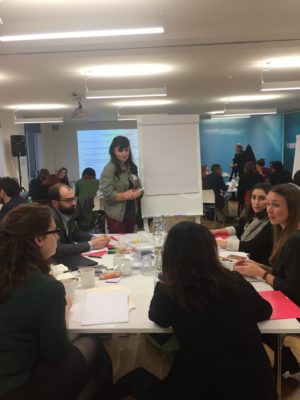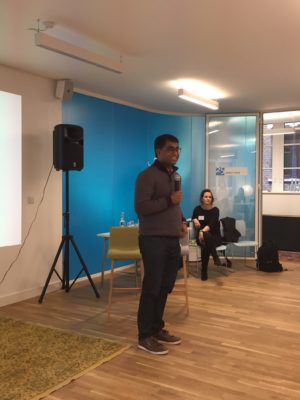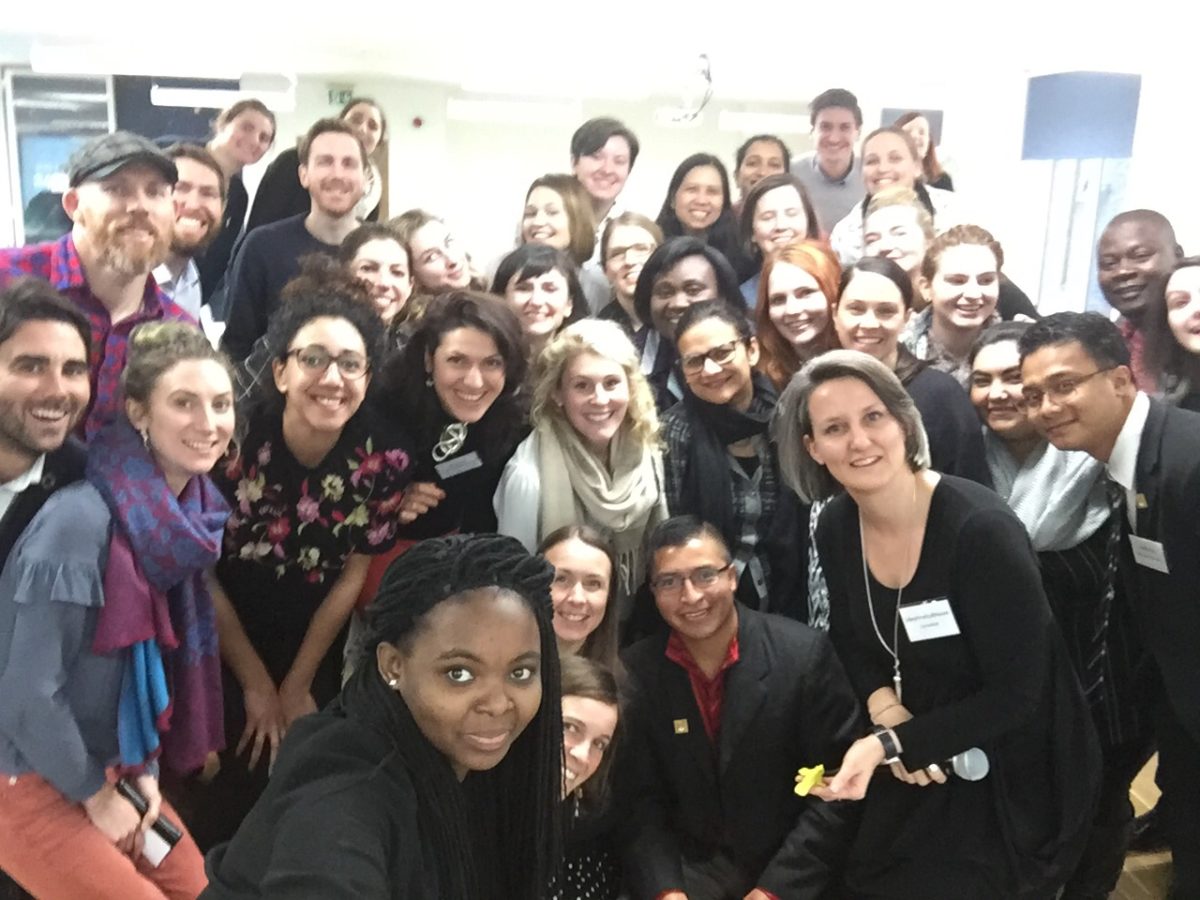ICAN Strategy Meetings Pave the Road Ahead
The International Coalition for Advocacy on Nutrition (ICAN) met last week in London to develop an advocacy strategy for the year ahead.
The coalition is comprised of organizations working to improve policies and scale-up investments in nutrition globally. ICAN grew out of collaborative efforts in the lead-up to Nutrition for Growth 2013 in London and since then, the coalition has grown significantly, now representing over 40 organizations from 15 different countries.

Given the significant funding gap globally for nutrition, ICAN has focused on mobilizing new resources for nutrition. The World Bank estimates that an additional $7 billion is needed each year to close the funding gap for 4 of the 6 World Health Assembly targets. Importantly, this amount is even higher when considering that an enabling an environment for good nutrition is also needed, including WASH, gender empowerment and production of healthy foods. Although it will take more than just money, additional funding remains critical to ending hunger and malnutrition.
In addition to new resources, ICAN also advocates for better use of existing resources for global nutrition. By ensuring that donors and governments use funding wisely, ICAN members help ensure that programming efficiently reaches the communities that need it most.
Government Donors
A top priority of ICAN has been, and remains, engaging the world’s biggest donors, primarily the G7 countries, to mobilize new and better resources for nutrition. By advocating during government budget cycles and pressuring world leaders to pledge at key global moments, ICAN members have kept the focus on investing in nutrition.
As recognized during last week’s strategy discussion, this work takes place in a difficult context. In recent years, there has been a decline in foreign assistance or overseas development assistance (ODA). Donors are spending less than 1% of ODA on high-impact nutrition interventions that build the foundation for a healthy, prosperous life.
In a difficult political and fiscal environment, the focus of many governments are immediate crises and domestic issues, often at the expense of foreign assistance. However, foreign assistance is equally an important tool for economic growth and global stability. During strategy discussions, it was clear that ICAN members are as dedicated as ever to advocating to donors to improve foreign assistance for nutrition, even in challenging times.
Holding donors accountable for the commitments that they have made to improve the lives of women and children through better nutrition is a key piece of ICAN’s strategy in 2018. G7 countries committed in 2015 to lift 500 million people out of hunger and malnutrition, and yet little has been done to advance that promise. In fact, hunger and malnutrition is on the rise globally, signaling that much more advocacy and pressure is still needed.
The World Bank
The World Bank has shown significant leadership for nutrition over the past few years with President Jim Yong Kim championing the issue, calling on countries to invest more in human capital, including investments in nutrition.
Good nutrition is critical to cognitive development and in turn, can have a significant impact on an individual’s earning potential and in turn, a nation’s economic growth. Between 2018 – 2020, the Bank has identified at least $1.7 billion for nutrition through International Development Association (IDA) loans and grants.
ICAN has worked closely with the Bank to maximize and increase these resources. The World Bank Annual and Spring meetings, for example, have provided an opportunity for civil society to highlight nutrition as a human capital investment and call on Finance Ministers to invest in national nutrition plans.
This will continue to be an important advocacy venue and ICAN members strategized on ways to improve its advocacy to ensure that the Bank is a driving force for improved nutrition for years to come. Relatedly, ICAN is exploring how innovative financing mechanisms like the Global Financing Facility (GFF) and the Power of Nutrition, can be used to leverage more and existing funding for nutrition.
Innovation & Creativity
At the ICAN meeting, the coalition was challenged by a provocative presentation from Danny Sriskandarajah, Secretary General of CIVICUS and Member of the Scaling Up Nutrition (SUN) Lead Group. He reiterated that advocates need to think and operate differently to achieve the Sustainable Development Goals (SDGs) by 2030.

ICAN is continuously striving to improve its way of working together and rise to the challenge of the SDGs. At this year’s coalition meeting, the coalition was joined by five members of SUN civil society alliances – advocates from Guatemala, Myanmar, Kenya, Senegal and the Philippines – that are building political will in their countries to improve nutrition.
ICAN partner organizations have a role to play in supporting country advocates and ensuring that country success stories and challenges are being brought to global attention. Coordinating this effort is not always easy but it is extremely necessary to promote country-led efforts to increase funding and improve policies for nutrition.
The Road Ahead
ICAN is reinvigorated to collaborate on these efforts and more in 2018, with an eye keenly focused on the horizon and the potential for a global pledging summit in 2020. In December, Japan announced its commitment to host a nutrition summit alongside the Tokyo Olympics.
While this is still two years away, the foundation is being laid now to work with the Japanese government, build momentum amongst world leaders and unite around a common vision. Together, with the collective voices of over 40 organizations, ICAN is a powerful voice in the nutrition space with an ambitious agenda ahead.

